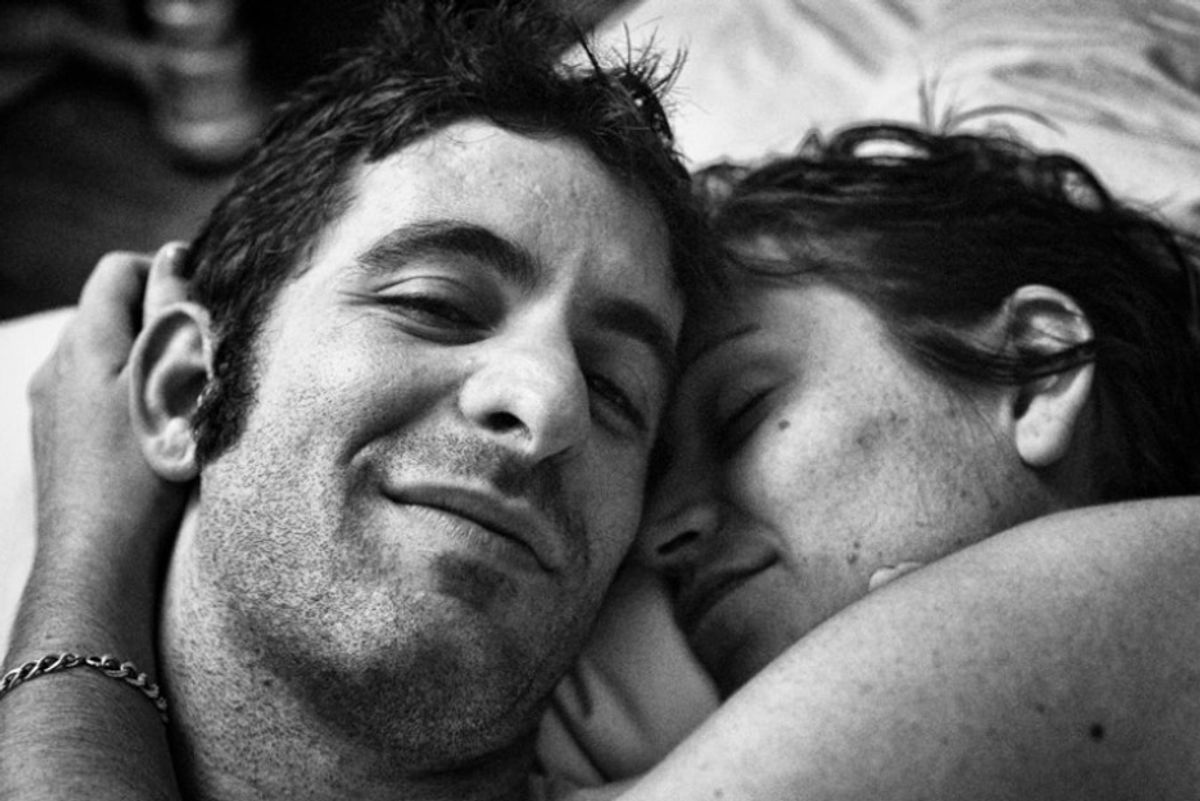A husband took these photos of his wife and captured love and loss beautifully.
I feel as if I were right there with them as I looked through the photos.
Snuggles.
When I saw these incredible photos Angelo Merendino took of his wife, Jennifer, as she battled breast cancer, I felt that I shouldn't be seeing this snapshot of their intimate, private lives. The photos humanize the face of cancer and capture the difficulty, fear, and pain that they experienced during the difficult time.
But as Angelo commented: "These photographs do not define us, but they are us."

Floating in the ocean.

Birthday celebration.

A time to rest.

Getting more treatment

Family present.

Thoughts in a hospital room.

A loving hand.

An ambulance trip.

A little smirk.

Home again.

Last rights.

An empty bed.

A lonely road.

“I loved it all."
This article originally appeared twelve years ago.
- What happens when a supermodel has cancer? 1 woman bravely shows the world. ›
- A girl and her dad played one last video game before he died. She'll never forget it. ›
- The beautiful thing that happens in Amsterdam if you die and have no one to attend your funeral - Upworthy ›
- Woman spots husband in photo years before they ever met - Upworthy ›
- How to take photos that look more like the real you - Upworthy ›
- Dad trusts mom's parenting advice over wife's opinion - Upworthy ›
- Widowed people explain why they've chosen not to remarry - Upworthy ›
- James Van Der Beek reflects on identity after facing cancer - Upworthy ›
- 6 photos of the same girl show how selfies distort what we really look like - Upworthy ›
- Woman discovers trick to instantly feel better about how you look in photos: 'ZOOM OUT I beg' - Upworthy ›













